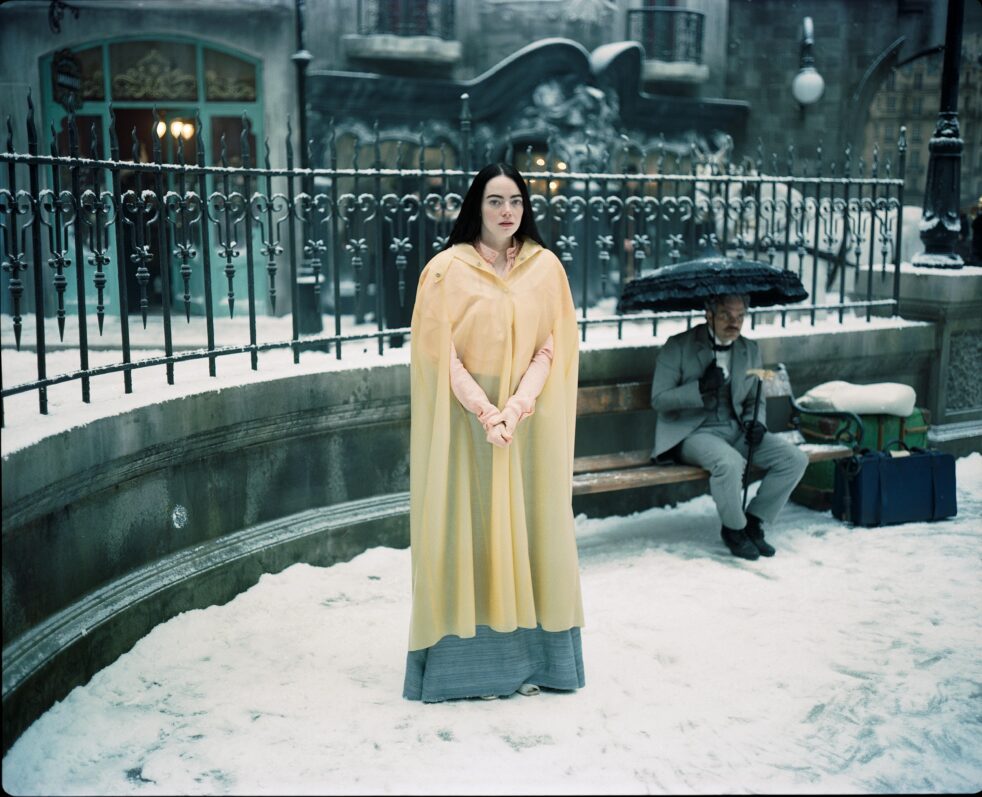It is not surprising that “Poor Things” has been making waves at awards shows in the months before the Oscars. The movie has an all-star cast, a beloved director, edgy themes, art-house sensibilities and social commentary to boot. Even more, it might be the most beautiful movie of the year, and it is pretty funny, too. If only it was all enough to mask the vapidity of the movie’s message.
“Poor Things” does a good impression of a profound work of art without actually being one at all, leaving viewers only with juvenile talking points. At least it is pretty to look at.
The movie begins with Bella (Emma Stone, “Superbad”) jumping off a bridge before her body is recovered by a deformed, Frankenstein-like mad scientist named Godwin Baxter (Willem Dafoe, “Platoon”).
He takes her to his home where he reanimates her corpse by switching her brain with that of her unborn child, raising Bella back to life but with the mind of an infant. Godwin — whom Bella calls “God” in one of the first signs the movie is not committed to subtlety — takes on a father-like role, teaching Bella how to be human. She learns quickly, and Godwin becomes increasingly attached to her, forbidding her from leaving the house. However, after meeting a man named Duncan, played by Mark Ruffalo (“Spotlight”) in a surprisingly hilarious turn, the two travel across an alternate version of Europe, showing Bella, who has no notion of societal norms, what the real world is like.
According to director Yorgos Lanthimos, the real world seems to be mostly just sex. It quickly becomes clear that Duncan only wants to sleep with Bella, who, lest you forget, still has the mind of a child, and the two do quite a bit of what Bella calls “furious jumping.”
As an aside, Bella’s ambiguous mental age is problematic in a way the film never really addresses. It feels like quite a big thematic oversight from a director as prolific and thoughtful as Lanthimos, and it would have gone a long way to explore the uncomfortable implications of Bella’s sexual naivete rather than playing it for laughs.
Sex momentarily bores Bella, however, and she encounters several different high-class characters while on the ship, casually trampling on their, as Bella sees it, purposeless social conventions. At dinner, Bella spits out her food announcing, “Why keep it in my mouth if it is revolting?” “Why should she?” Lanthimos seems to be gleefully asking. This becomes the basic structure of the film.
Bella later leaves the ship and, after giving away all her money in a fruitless attempt to help the poor, becomes a sex worker. Duncan shames her for it, but Bella seems to enjoy her work well enough, overcoming yet another societal norm coming between her and liberation.
She goes on more adventures and discovers more social mores she finds absurd, taking the audience on a bizarre romp through admittedly stunning set design and cinematography. Visually, “Poor Things” is an achievement, and Lanthimos is excellent here, as always.
Thematically, the film never rises above the conceit that Bella finds society’s rules stifling, leaving the audience to watch her move from one encounter to the next, tossing aside whatever social convention is keeping her from her short-term desires. There is no alternative perspective, no deeper meaning and no nuance. There have been films that have tackled these themes of sensuality in a thought-provoking way — think “Call Me By Your Name”— but Lanthimos seems to have learned nothing from them.
For all its bravura and for all the bombastic performances, the film boils down to a fish-out-of-water comedy about a societal outsider tossing aside the world’s rules to have more fun than everyone else. The movie posits that Bella learns what life is really all about, but really, she just discovers life’s sensual pleasures, without its love, heartache or pain. “Barbie” captured those deeper feelings better in its last five minutes than “Poor Things” did in 140 minutes. It is not that the themes of “Poor Things” are wrong, per se, only superficial. Life is more than the five senses, and it is disappointing to see as talented a filmmaker as Yorgos Lanthimos settle for telling such a trite story, no matter how beautifully.
OUR TAKE: 2 OUT OF 5 STARS
